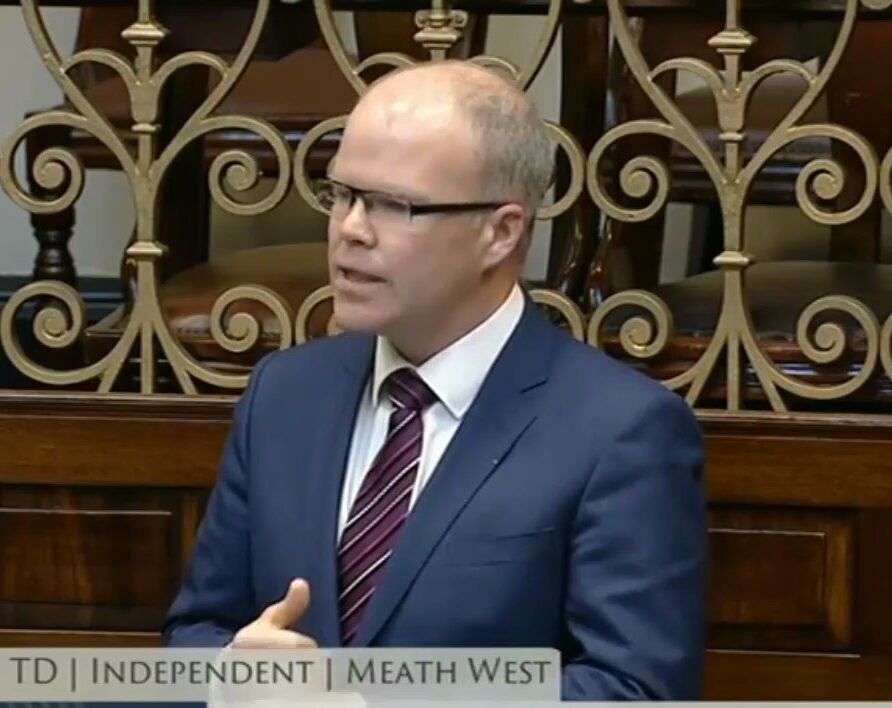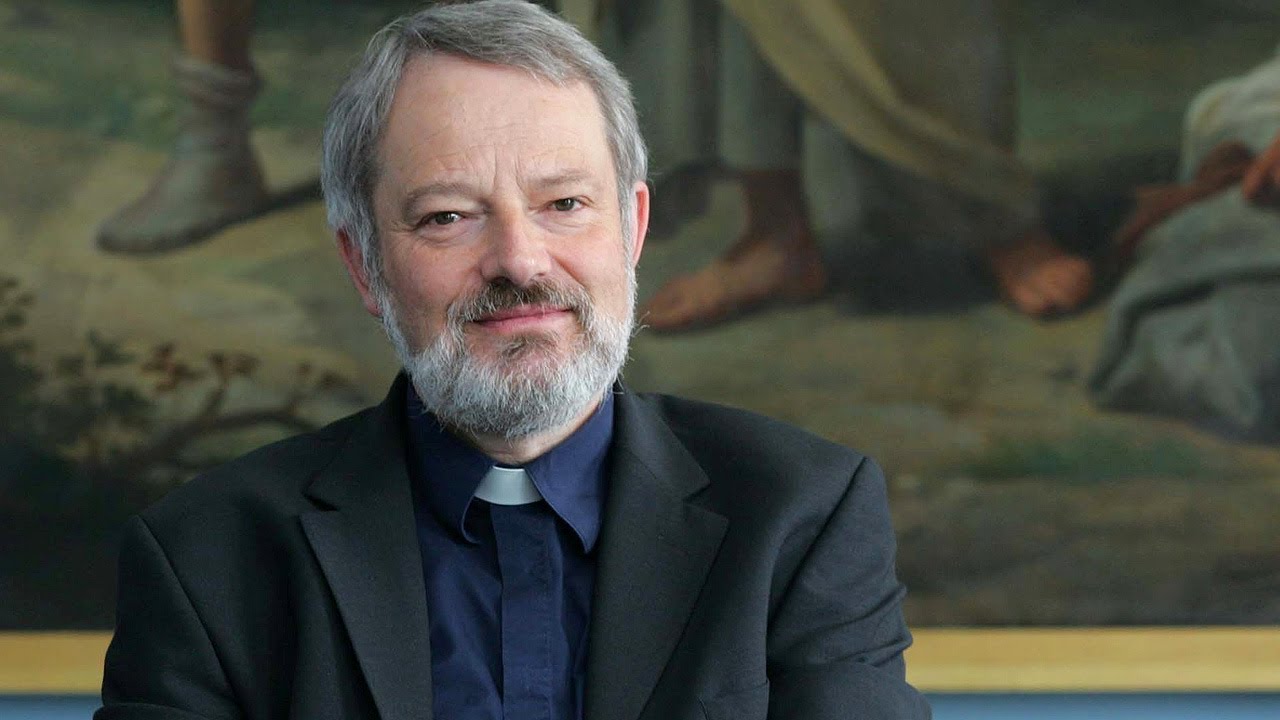
It is estimated that 10,000 extra abortions have taken place since the procedure was legalised over a year ago.
That’s according to the leader of Aontú, Peader Tóibín, extrapolating from figures provided by the Southern Taskgroup on Abortion and Reproductive Topics (START).
Speaking on the 2nd anniversary of the deletion of the Right to Life from the Constitution, Aontú Leader Peadar Tóibín TD said in every country where abortion is legalised, the rates of abortion increase radically and the evidence so far indicates that this has happened in Ireland too. “If the abortion providers’ representative group are correct, then 10,450 extra lives have been lost in the 14 months that have passed since the abortion service was created. This is a significant loss of life, multiples of what’s been lost to Covid”.
He said the vast majority of women opt for abortions for “socio-economic reasons”, with many feeling they have “no choice” because of the economic situation they are in.
Nonetheless, “We have seen absolutely no evidence in the 2 years since the referendum that the government have focused on supporting mothers financially to ensure that they actually have a choice when it comes to the birth of their children”.
The Aontú leader also revealed that during the course of government formation talks which Aontú withdrew from last week, the topic of the rights of unborn children was met with little enthusiasm by Fine Gael and Fianna Fáil.
“It was abundantly clear to us that neither political party had any appetite for any change in the law to make it even marginally more humane. And indeed, we received no assurances that either Fianna Fáil or Fine Gael would prevent further deregulation of the human Right to Life when the law comes up for review next year”.

The board of St Vincent’s Healthcare Group (SVHG) has said no “vested interest” will veto procedures at the new national maternity hospital (NMH), that is to be built on the grounds of St Vincent’s, Elm Park.
This means all medical procedures permitted in Irish law, including elective abortions, will be provided for.
St Vincent’s was founded by the Sisters of Charity in 1834.
It is not clear whether the values underpinning St Vincents—human dignity, compassion, justice, quality and advocacy—or the Christian values that inspired the work of Sr Mary Aikenhead, will have any bearing on what procedures are carried out.
The SVHG healthcare group comprises St Vincent’s University Hospital and St Vincent’s Private Hospital at Elm Park in Dublin, as well as St Michael’s hospital, Dún Laoghaire. All are owned by the Sisters of Charity, who have had no role at the hospital group since 2017 when their representatives resigned from its board.
Earlier this month it was announced that the Vatican had approved a decision by the Sisters “to transfer the entire issued share capital of St Vincent’s Healthcare Group to St Vincent’s Holdings for the nominal sum of €1”.
Dr Peter Boylan, life governor and former master at the National Maternity Hospital, asked whether the Sisters will transfer their property, assets and services into a Vatican-approved entity known as a public juridic person of pontifical right. This, he said, would oblige them to submit an annual ‘stewardship accountability report’ to the Vatican. “It is hard to see how such a report could include the numbers of elective sterilisations, abortions and artificial fertilisation procedures carried out in the hospital in the year, and continue to be approved by the Vatican,” he added.

In the US state of Minnesota, Catholic and Lutheran leaders have told the Governor they are reopening their churches for services ahead of his published schedule.
Governor Tim Walz had announced that shopping malls, beauty salons, tattoo parlours, & casinos could open, but churches must restrict services to ten people.
The Catholic bishops and Lutheran Synod, however, now say they will recommence worship services on Tuesday while instituting rigorous social distancing and hygiene protocols.
Their first Sunday services will then be held on Pentecost Sunday, May 31st.
In Ireland, public worship including Mass will not return until July 20th.

Finland is the world’s happiest nation for the third year running, experts at the United Nation have declared.
Researchers for the World Happiness Report asked people in 156 countries to evaluate their own levels of happiness, and took into account measures such as GDP, social support, personal freedom and levels of corruption to give each nation a happiness score.
Ireland has dropped to 16th place on the latest list, down two spots on the previous list.
As in each of the previous seven reports, Nordic states dominated the top ten, along with countries such as Switzerland, New Zealand and Austria.
Luxembourg also edged into the tenth spot for the first time this year.
The happiest countries are those “where people feel a sense of belonging, where they trust and enjoy each other and their shared institutions,” John Helliwell, one of the report’s authors, said in a statement. Issues like family breakdown are not included.
“There is also more resilience, because shared trust reduces the burden of hardships, and thereby lessens the inequality of well-being”, said Helliwell.

The Bishop of Elphin has told Ocean FM that he and other bishops of the Tuam province are preparing a plan to enable public mass to safely resume in churches before the 20th of July.
Under the government’s roadmap of phased re-openings, restrictions on public worship won’t be lifted until the third week in July.
Kevin Doran says any earlier opening would be contingent on approval from the public health authorities.
Bishop Doran says the size of congregations would have to be reduced in size – and signalled that some parish may consider staggering mass attendances by townland or area over the course of a weekend, to enable all parishioners attend church again.
He stressed that parishes will be relying on members of their congregations to assist with stewarding and cleaning, as churches begin to re-open.

A large majority of people believe the Covid-19 pandemic has made the public rethink their attitudes toward the dying, a new survey by the Irish Hospice Foundation has found.
The poll by market research firm Behaviour & Attitudes found that 68 per cent of people felt that the virus had made people rethink how it deals with dying, death and bereavement.
Chief Executive of the Irish Hospice Foundation, Sharon Foley said: “We know from our work over 30 years that Irish people want a society where death and bereavement is openly talked about and not hidden away, where people can die with dignity and that supports and services are in place for end of life and for loved ones who are bereaved”.
The research also showed the significant impact of lockdown measures restricting the numbers at funerals. 89% of people said that being with extended family and friends is key to grieving.
Ms Foley added: “We know that grieving in isolation has resulted in doubtless suffering for many individuals and families. That is why we have written to the National Public Health Emergency Team calling on them to increase the number of people allowed to attend funerals while maintaining social distancing and other public health measures.”
In addition the charity has called for “a national response” in the wake of the pandemic and for the next government to develop a new “whole of government strategy” to “end of life care.”
Among the proposals in a seven-point policy document published by the charity is a suggestion that end of life and palliative care services be set up in nursing homes, the sector worst hit by the pandemic, and that people be allowed to die at home or their place of preference.
https://hospicefoundation.ie/irish-rethink-death-and-bereavement-post-covid-19/

In Rome on Monday tears were shed as people returned to mass for the first time since lockdown.
One woman told Rome Reports that it was a moment of great joy when she heard she could go to church and receive the sacrament. Another expressed her happiness at being able to “return to church and participate at Mass.”
While mass attendance is now allowed, stringent health safety measures could prove frustrating for some.
“Yesterday, I was struck when I returned and saw the division in the pews. It hurt to see that”, said one woman.
Parish volunteers must ensure there aren’t too many people inside the church at once. Hand sanitiser must be provided at the entrance. If the building allows, the entrance and exit doors must be different. Parish priests have put markers on the pews to avoid filling them completely and to guarantee safety distances are respected.
Holy water is no longer available, and the sign of peace is no longer given. It is recommended that priests distribute communion wearing a mask and gloves, and that the church be cleaned thoroughly as often as possible. The military is helping out in some Roman parishes. Other parishes have hired specialized cleaning companies to prevent damaging works of art.
The Vatican also fulfilled its responsibility, disinfecting the basilica before reopening. It also placed warnings in the square to avoid breaking social distancing norms. Air traffic is practically nonexistent, as are tourists, leaving Rome to the Romans. For now, they’re the only ones who will be able to visit or pray in the basilica. That’s because in Italy, people won’t be allowed to travel to different regions until June.

The Highest Court in France has ordered the Government to lift the ban on public worship.
The ban had been imposed in the Covid-19 lockdown in March, and remained in place when some restrictions were eased last week.
In a judgement on Monday, the Council of State said the ban is no longer proportionate, and now represents a “serious infringement” of freedom of religion
It has given the French Prime Minister, Edouard Philippe, eight days, starting on Monday, to lift the prohibition.
At the end of April, the French Catholic Bishops had expressed their displeasure when it was announced that churches were to remain closed for public mass until June 2nd.
“Honestly, we are extremely disappointed,” Paris Archbishop Michel Aupetit said. “They don’t trust us. Why can markets, little museums and mediatheques open up and churches can’t? That doesn’t make sense.”
Bishop Matthieu Rougé from Nanterre had said “The Catholic Church in France wants a responsible ecclesial ease of lockdown, at the pace of the rest of the society, and we presented a very rigorous plan in terms of distance between the faithful inside churches, at the entrance and exit, during processions, proposing liturgical adaptations and the possibility of wearing masks”
He lamented that the Prime Minister, Edouard Philippe, made the announcement without even having explicitly responded to the bishops’ proposed plan for Phase 2.
He suspected “an anticlerical bias in general, maybe anti-Catholic in particular”.

A poll of Catholics in the Campania region of Italy found the majority supportive of the Government’s restrictions on religion during the first phase of the Covid19 lockdown in March. Public worship with limits on number returned in Italy on Monday.
4,032 responded to a poll conducted by a research team from three universities in Benevento, Caserta and Naples.
Regarding the Government’s limitations on religious practice, 33% considered it an expression of the right collaboration of State and Church; 26% thought it a necessary measure that the government had to adopt; and 20% said it was a fair limitation of a person’s rights, as inspired by personal and social responsibility. On the other hand, 8% said it was a violation of religious freedom; 3% an abuse of Government; while 6% said it was the responsibility of bishops and priests who were not able to defend their reasons.
Regarding specific limitations, 49% said the ban on funerals was the one they agreed with the least. Next was not being able to attend mass on Easter which registered with 13%.
Regarding what they missed the most, 32% indicated the lack of holy communion; ahead of 29% who pointed to the lack of religious comforts and a funeral if they or a relative were to die.

Children, those under the age of 18 years, were the confirmed or suspected perpetrators in almost 20 per cent of all sexual crimes reported to the Garda last year, according to the Irish Times.
Newly-released figures also show 83 per cent of the complainants of the total number of sexual crimes reported to the Garda in 2019, were alleging they had been sexually abused when they were children.
81.1% of victims of sexual violence recorded in 2019 were females, while 18.9% were males. In addition, 98 per cent of the perpetrators in sexual offences are male, according to the new set of crime data released by the Central Statistics Office (CSO).
Some of the information released on Friday relates to 2019 and some to 2018.
Of the sex crimes that were reported to the Garda in 2019, 62 per cent of the offences had occurred within a one-year period before they were reported.
24 per cent occurred 10 years or more before the victims went to the Garda.